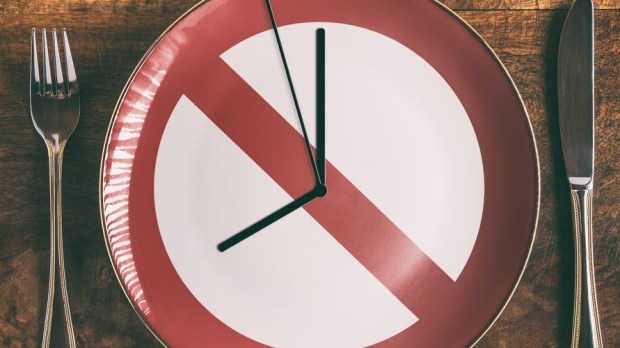Lenten Campaign 2025
This content is free of charge, as are all our articles.
Support us with a donation that is tax-deductible and enable us to continue to reach millions of readers.
Editor’s Note: While fasting is a longstanding practice for many Christians and helpful for many people, you should consult with your doctor first if you have certain medical conditions, are pregnant or breastfeeding, or have had an eating disorder.
Last week, I did something crazy. After listening to some podcasts on the benefits ofextended(24+ hours) fasting, my curiosity was piqued and I decided to give it a try. I also decided not to tell my family in advance, for two reasons: first, I wanted to follow the scriptural admonition to fast in secret, and second, I didn’t want to admit failure if I failed. After all, 24 hours with nothing but water, green tea, and some electrolytes is a serious challenge.
I figured I might as well kill two birds with one stone and start on a day when I work evenings, since I’ve been trying to get out of the habit of eating dinner at 10 p.m. when I get home. I intentionally moved my meals up earlier that day, eating my last meal at 4 p.m. before I headed to work. I had expected that night to be the easiest, but I still ate a big, nutrient-dense meal — which worked as anticipated. By the time I got home from work, I wasn’t hungry. But I was grumpy.
I always have at least an hour of paperwork to wrap up at home on nights when I work, and it’s become habitual to eat dinner while I do it. Without dinner, I had nothing to look forward to except … yuck … paperwork. And weirdly, without the motivating hunger I’d become accustomed to, I was tired. Like bone-deep, nothing-left-to-give weary. I’m not proud of it, but the truth is that hour of work was one of the most bitter, most self-pitying hours I’ve experienced in quite some time.
Nevertheless, I got it done and collapsed into bed — an hour earlier than usual, which was an unexpected bonus. But when I woke up, I did not feel refreshed. I felt groggy and almost as tired as the night before — only halfway into my 24 hours.
I have a healthy level of scientific curiosity and an unhealthy level of sheer stubbornness, however, so I stuck it out. By hour 16, I was ravenous. Food was all I could think about. Luckily for me, I had to work soon after that, and I’m 99% sure that leaving my debit card at the house when I went was my saving grace. I felt slightly foggy and off-kilter for the first hour or so of work, but by 1 p.m. — 18 hours in — my head cleared up and I started feeling pretty good. Not great, but much better. I stayed busy until it was time to pick the kids up from school and begin homework and dinner.
When we got home, a curious thing happened. I started making dinner and helping with homework and realized that I felt peaceful — 20 hours into my fast. I didn’t have a ton of energy or feel abnormally happy — I just felt calm. Even when all five kids were asking me questions about homework at the exact same time I was trying to keep the onions from burning, I was calm. Not pretending to be calm on the outside, but actually, genuinely, deep-in-my-spirit calm and at peace. It was such an amazing experience that I almost didn’t want to eat when I finally got to hour 24 … Almost.
Of course, I ate dinner with the kids and helped them finish homework before we started the bedtime rituals. We read stories and sang songs and even though I’d eaten, I still had that oddly peaceful feeling. It was one of the best nights we’ve had in a long time — and the kids told me as much. I went to bed that evening feeling a deep sense of gratitude that my curiosity and stubborn pride had propelled me through what I used to think was an insane, nearly barbaric Old-Testament-style penance.
It turns out that fasting has benefits that go far beyond the physical. Yes, it forces you to rely more on God — trust me, there were plenty of moments around the 16-18 hour mark when I had to beg Jesus to take the wheel. But I also suspect that it has a spiritually renewing effect that’s much like the physical renewing your body undergoes. There might be scientific explanations for the peace I felt, and still feel … but those explanations don’t diminish how grateful I am for the unexpected gift that came with a 24-hour fast. Fasting like this is not for everyone — and should never be used to cover up a deeper problem — but those who can benefit from it may find it a helpful practice to try.

Read more:
3 Mental health benefits of fasting, according to Thomas Aquinas

Read more:
No food, only beer: Fasting like a 17th-century monk

